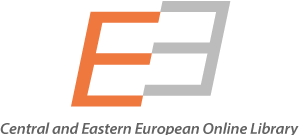Publishing and ethical principles
The Editorial Board of the Journal of PhD Studies in Public Administration and ICT Law is committed to upholding high standards of professionalism and ethics in the publication of the journal - and all papers published in the journal must comply with these requirements.
These guidelines have been developed in accordance with the Committee on Publication Ethics' standards of conduct for journal editors (known as the COPE guidelines) and the requirements of the Code of Ethics for Journal Editors of the Hungarian Academy of Sciences. All stakeholders contributing to the publication of papers in the journal must agree to the following standards of professional and ethical conduct.
- Requirements for the Editorial Board of the Journal
The Editorial Board decides on the content to be published on the electronic platform of the journal, and the Editor-in-chief places it on the basis of this decision. The Board is responsible for reviewing the papers submitted, initiating the peer review process, evaluating the reviews, carrying out the editorial tasks required for publication and publishing the papers accepted for publication. The Editorial Board reserves the right to review the manuscripts received
- to examine the submitted manuscripts on a system suitable for the detection of plagiarism,
- reject them for formal or substantive errors or omissions before the review process has begun.
The publication of manuscript and editors' possibilities for publication may also be limited by existing legislation and binding rules.
In carrying out the above tasks, the Editorial Board adheres to the following principles:
Fair process: editors will evaluate manuscripts submitted for their intellectual content, without regard to the race, gender, sexual orientation, religious beliefs, ethnicity, nationality, or political affiliation of the authors.
Confidentiality: editorial staff shall not disclose any information about the manuscript submitted for publication to anyone other than the author, the proofreaders, potential proofreaders, other editorial consultants, or the publisher.
Publication and Conflict of Interest: Papers accepted for publication will be published by the editors. Papers awaiting publication but not yet published and results awaiting publication may not be used by contributors in their research and publication activities.
2. Responsibilities of the reviewers involved in the publication of the Journal
Papers are assessed by independent and anonymous reviewer who are external experts and not members of the Editorial Board. Each manuscript is evaluated by two reviewers. The Journal does not pay any honoraria for peer review, but will issue a certificate of peer-review on request. The publication of submitted manuscripts is subject to the opinion of the reviewers and, in the event of divergent editorial opinions, the Editorial Board will decide whether to accept or reject the paper. Compliance with the formal requirements is a prerequisite for the start of the peer review process and is the responsibility of the Editor-in-Chief.
In carrying out his/her duties, the reviewer must adhere to the following principles:
Contributing to the editorial board's decisions: the referee comments on submitted manuscripts, recommends rejection or acceptance, and suggests changes and corrections for papers to be revised. The referee draws the attention of the editors to any substantial similarity or overlap between the manuscript under review and any previously published paper of which he/she is aware.
Promptness and expertise: reviewers are invited by the Editorial Board. Reviewers are invited on the basis of their professional expertise. A reviewer may request to be excused after the review has started if he/she feels that the study under review is outside the research domain, has a conflict of interest, or knows that rapid proofreading is impracticable. In the latter cases, the person requesting the exemption must notify the Editor-in-Chief or propose a new reviewer.
Confidentiality: all manuscripts submitted for review must be treated confidentially by the reviewer, who is not allowed to consult others and may only cite the scientific results after publication.
Objectivity: the referee's opinion must be objective. Criticism of the author's identity is not acceptable. Peer reviewers must substantiate their claims with arguments.
Disclosure and conflict of interest: if the reviewer obtains confidential information in the course of the review, he/she must keep it confidential and not use it to his/her own advantage. Reviewers should not review manuscripts which present a conflict of interest with any of the authors or the author's institution.
3. Responsibilities of authors
The acceptance of manuscripts is based on the acceptance of and compliance with professional and ethical guidelines. As the journal can only partially monitor compliance with the guidelines, it is the author's responsibility to comply fully with them, while enforcing the following principles:
Principles of publication: authors should accurately describe the original research in their papers in a way that allows for critical discussion. Papers should respect the formal requirements of the journal, cite references, and present the data and results obtained in a realistic manner.
Originality and plagiarism: any form of plagiarism is unethical and unacceptable. Authors must ensure that their written work is entirely their own intellectual product. Where authors use the work and/or expressions of others, they must cite and quote them appropriately. The Editorial Board will check the originality of all manuscripts submitted.
Multiple publication: It is unethical and unacceptable to publish a piece of writing with the same text and content in more than one journal.
Authorship: authorship of publications should be limited to those who have made a genuine and substantial contribution to the conception, design, writing or interpretation of the paper. All those who made a significant contribution to the study should be listed as co-authors. The Principal Investigator or first listed author should ensure that all eligible co-authors are included in the manuscript and should ensure that the final version of the study accepted for publication is made available to all co-authors.
Significant errors in the published paper: Significant errors or inaccuracies can be corrected before and after publication of the manuscript. If the author discovers a significant error in a published or submitted paper, he/she is obliged to report this fact to the Editorial Committee. The Editor-in-Chief will then allow the correction of the error or the publication of a correction.
Disclosure and Conflict of Interest: Authors must disclose the sources of financial support for the research related to the paper, financial and other potential conflicts of interest that may affect the interpretation of the results.













